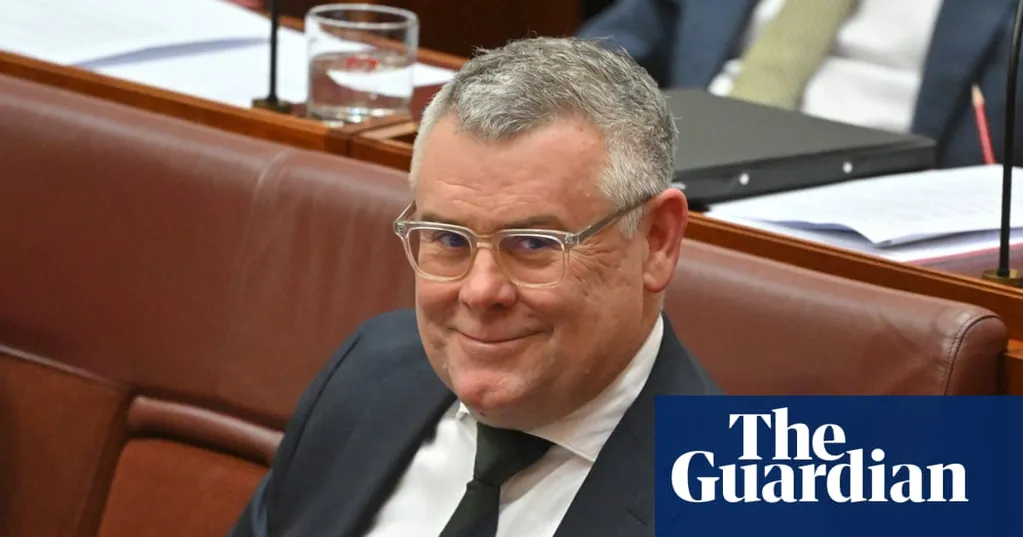The environment minister would be able to approve projects at odds with nature laws if it was deemed in the "national interest" under the Albanese government's planned overhaul of the environmental protection regime.
The proposed new provision was revealed in extracts of the legislation that were circulated to stakeholders on Monday, before its introduction to federal parliament later this week.
The Coalition and the Greens have resisted Labor's pressure to wave the proposal through, setting up political fight over nature in the final sitting weeks of the year.
Under new discretionary powers, the minister would be able to green-light a development that was potentially in breach of national environmental standards if it was considered to be a "national interest proposal".
The provision was recommended in Graeme Samuel's 2020 review of the EPBC Act, which called for it be used as a "rare exception, demonstrably justified in the public interest and accompanied by a published statement of reasons which includes the environmental implications of the decision".
Extracts of the draft legislation, seen by Guardian Australia, show the provision would effectively exempt "national interest proposals" from a series of tests designed to protect nature, including a requirement not to cause "unacceptable impact" on the environment.
The proposed carve-out has prompted immediate concern among environmentalists.
The Wilderness Society's Sam Szoke-Burke said the legislation needed "iron-clad protections" for nature based on science, not exemptions that give significant discretion over decisions to whoever is in power.
"The government should ensure greater certainty for the environment and the economy by replacing loopholes and carve-outs with stronger, clearer protections for koalas and forests," he said.
The campaign director of Humane World for Animals Australian, Nicola Beynon, said ministerial discretion over environmental decisions should be removed, not expanded.
"We are concerned if the reforms do not limit that exemption to genuine emergencies. In the hands of an irresponsible minister, loosely worded exemptions can be very dangerous," she said.
Other extracts of the legislation circulated on Monday outline the powers of the proposed environment protection agency - details of which were published on Sunday.
The minister will retain approval powers but would probably delegate most decisions to officials inside the nature watchdog.
The new laws would allow the minister to issue "protection statements" to clarify what decision-makers must consider in order to protect threatened species or ecological communities.
"These measures will ensure decision-makers have a toolkit to respond rapidly to serious and urgent emerging events," Watt said.
"This is all about delivering stronger environmental action in a streamlined, sensible way."
On Monday, Samuel urged the Coalition and Greens to set aside grievances with Labor's nature laws and support them, avoiding further delays in fixing a system that his landmark review found was broken.
Samuel reserved his strongest words for the Coalition after it tried - and failed - to convince Labor to split the bill in two, prioritising measures to fast-track projects while delaying environmental protections.
The former competition watchdog's review was originally commissioned by the former environment minister and now opposition leader Sussan Ley.
"I don't know what is going on at the moment," he said.
"It frustrates me and it makes me a bit angry. What we are talking about here is the future of nature for our children, our grandchildren and great-grandchildren."
The Coalition's push to split the bill was immediately rejected by Watt and the Business Council of Australia, whose members include BHP, Woodside and Rio Tinto.
"We favour having everything on the table at the same time, and we think that that approach assures us the best basis for getting the right balanced outcome that ultimately secures benefits to the environment and for business," said the BCA's chief executive, Bran Black.
While the business council was critical of Ley's attempt to split the bill, Black said industry had several concerns with the legislation, including a new definition for "unacceptable impact" on the environment, the EPA's powers to issue "stop-work" orders to halt projects and new emissions reporting requirements.
Black confirmed industry wanted the Coalition to strike a deal with Labor to pass the laws, sidelining the Greens.
Watt has so far only ruled out a "climate trigger", leaving the door open to changes to address industry concerns.
"The Coalition and the Greens need to decide whether they will support the reforms, or if they'll be the reason our environment, business and Australian communities suffer," he said.
